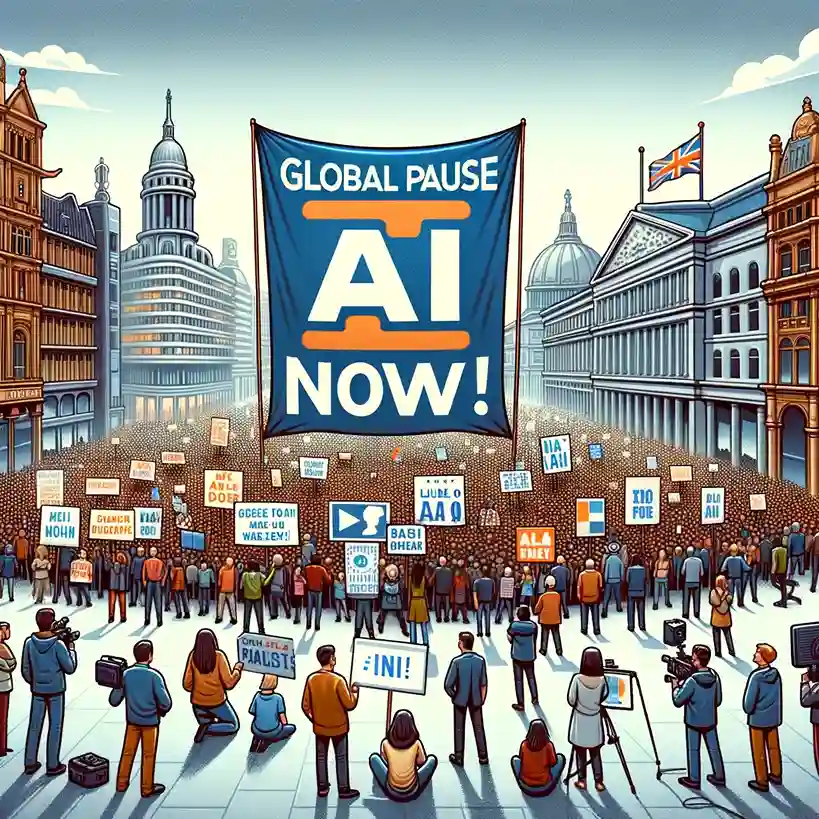Global Outcry: PauseAI Protests Demand Enhanced AI Safety Measures Worldwide
On May 14, 2024, the activist group PauseAI, known for its stance on artificial intelligence safety, orchestrated a series of global demonstrations to urge a temporary stop to the development of AI technologies exceeding the capabilities of GPT-4. These protests took place in major cities across the world, including New York, London, Sydney, and Sao Paulo, aiming to spotlight the potential risks associated with advanced AI systems.
PauseAI’s primary concern, as stated on their website, is to influence key decision-makers attending the upcoming AI Safety Summit in Seoul. Their goal is to ensure these leaders recognize the significant risks involved with unchecked AI advancements and take responsible actions. The summit, scheduled for May 21 and 22, follows the UK AI Safety Summit from the previous November, where initial enthusiasm for international collaboration on AI safety has since shown signs of decline, with several participants withdrawing.
The organization admits that halting the AI development process globally is a complex issue, as countries and companies may not willingly give up their competitive edge. Thus, PauseAI advocates for a collective pause in AI advancements, emphasizing the need for a coordinated international approach. They propose the establishment of an international AI safety agency, a concept also supported by Sam Altman, CEO of OpenAI.
This call for caution coincides with OpenAI’s release of GPT-4o, an upgraded version of the GPT-4 model, which has garnered attention for its enhanced capabilities. While many AI enthusiasts are excited about the new developments, PauseAI remains skeptical, questioning the long-term implications of rapidly advancing AI technology.
The effectiveness of PauseAI’s methods, which include sit-ins, distributing leaflets, and displaying placards, remains to be seen. The group hopes these actions will prompt world leaders to implement stringent AI safety measures. PauseAI’s stance is rooted in the belief that the advent of advanced general intelligence (AGI) is not inevitable but rather a result of deliberate choices made by society, including significant investments in engineering and hardware.
Historically, protests have spurred action on various issues such as GMO foods, nuclear weapons, and climate change. However, the urgency to address AI safety faces challenges, notably the immediate benefits AI technologies are bringing to society, which may overshadow potential risks.
As the world grapples with these considerations, the debate continues. Will the efforts of PauseAI and similar groups lead to meaningful change, or will the progress of AI technology outpace the implementation of necessary safeguards? The answers to these questions may determine whether the concerns of PauseAI are justified or if their warnings will be a mere footnote in the rapid evolution of AI. As the situation unfolds, the impact of these protests on future AI policy and the balance between innovation and safety will be closely watched, potentially shaping the trajectory of AI development for years to come.




